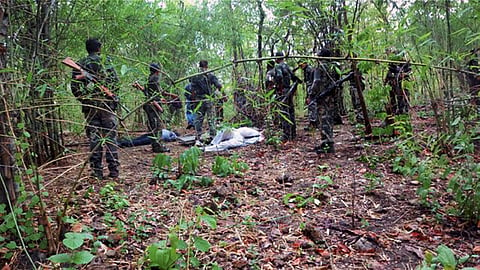

RAIPUR: The United Nations has identified Improvised Explosive Devices (IEDs) as a severe global threat, a challenge that remains significant in the conflict-ridden Bastar region of Chhattisgarh. For over four decades, IEDs have posed a constant danger to security forces conducting operations in the area.
Maoists, engaged in a prolonged conflict against the State, heavily rely on IED attacks due to their combat-avoiding nature. In guerrilla warfare, IEDs are a simple yet deadly weapon, often used to target security forces or vulnerable groups.
“IEDs remain one of the major challenges faced by security forces in countering left-wing extremism in the Bastar region. We have lost hundreds of brave soldiers, as well as innocent civilians, including women, children, and even cattle, to IED explosions,” said Sunderraj P., Inspector General of Police (Bastar range).
Since Chhattisgarh became a separate state in November 2000, security forces have recovered approximately 3,800 IEDs in Maoist-affected districts. Over 1,550 security personnel have been killed in IED-related incidents during this period.
The task of detecting and de-mining IEDs has grown increasingly daunting. Between 2001 and 2010, 938 IEDs were recovered, a number that more than doubled to over 2,000 during 2011-2020. Between 2020 and 2024, security forces have detected 1,122 IEDs as part of Maoists’ counter-offensive tactics.
Security experts revealed that Maoists received initial training in the 1980s and 1990s from the Liberation Tigers of Tamil Eelam (LTTE) of Sri Lanka. Despite advancements in technology, there has been little significant progress in detecting IEDs, making human involvement critical in identifying and neutralizing these threats.
“The Maoists formally train every recruit in manufacturing and planting IEDs. The use of IEDs is inhuman and violates international conventions for two reasons: it causes excessive suffering, which breaches the laws of humanity, and it indiscriminately targets anyone, without distinction,” said R.K. Vij, retired Special DG, who has extensive experience working in Maoist-affected regions of Chhattisgarh.